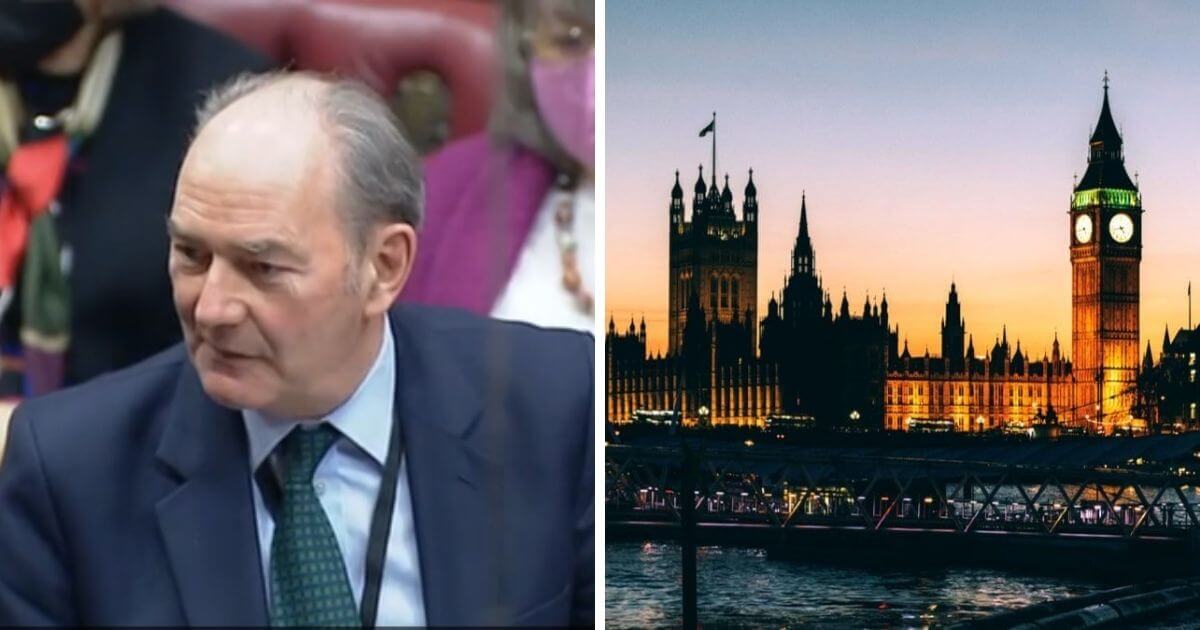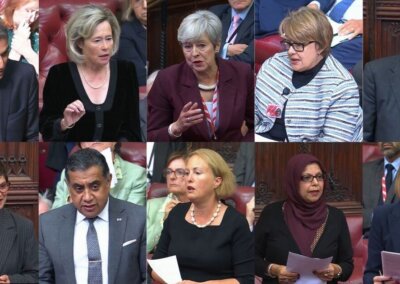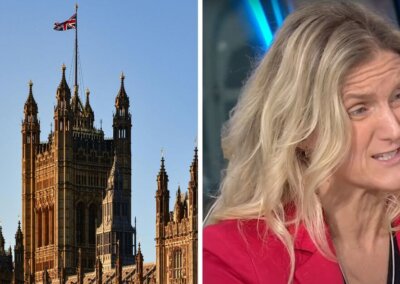Following a late-night debate in the House of Lords yesterday, Lord Forsyth chose not to take his assisted suicide amendment to the Health and Care Bill to a vote at this stage.
Several Peers from across the political spectrum spoke strongly against the amendment that would have forced the Government to present a draft assisted suicide Bill to Parliament within a year of the Health and Care Bill passing into law.
Although the Government last night declared that such an amendment “would not be appropriate”, Lord Forsyth stated his intention to bring his amendment back for a vote at Report Stage in the coming weeks.
“The wrong amendment in the wrong Bill”
The Forsyth amendment was heavily criticised for attempting to hijack the Government’s legislative agenda with a proposal that is already being considered by Parliament through Baroness Meacher’s Assisted Dying Bill.
Lord Carlile of Berriew argued that “this is a completely misconceived proposal, both procedurally and, were we to come to it, on the merits”.
Similarly, the Conservative Peer Lord Moylan contested that “the idea that we can impose on the Government something that they do not want to do, for which they have no electoral mandate and which is not on their policy platform, seems an abuse”.
Although Lord Forsyth attempted to claim that his amendment would only cause the Government to draft an assisted suicide Bill rather than introduce it to Parliament, the former Lord Chancellor, Lord Mackay of Clashfern, explained that “a Bill has to be in draft at some stage, but the object of producing this Bill is not that it should remain in draft but that it should be considered”.
Strong objections to assisted suicide raised by Peers with backgrounds in palliative medicine and disability sport
While the debate primarily focused on the procedural problems with Lord Forsyth’s amendment, a number of Peers emphasised the grave issues with any attempt to legalise assisted suicide.
Crossbench Peer Baroness Finlay, professor of palliative medicine and doctor, highlighted that “areas where assisted dying has happened rank low on end-of-life care compared to the UK” and “areas with assisted dying have dropped in the rankings for palliative care since 2015 compared to areas which did not change the law”.
Speaking from the perspective of living with incontinence, Baroness Grey-Thompson expressed concern at “the issue of incontinence being seen as so inherently tragic that people should use it as a reason to want to end their lives”. The disabled Peer and Paralympian explained that “there is nothing undignified about being incontinent if we support it properly” but “[some] people are scared to talk about it, because they think it is something that we should never discuss”.
Lord McCrea added that “an assisted suicide law, however well intended, would alter society’s attitude towards the elderly, the seriously ill and the disabled, sending a message that assisted suicide is an option that they ought to consider”.
Lord Forsyth’s amendment fails to receive Government support
In response to the debate, the Government Health Minister, Lord Kamall, judged that “it would not be appropriate to include a commitment to bring forward new primary legislation in the Bill”.
The Government’s rejection of this assisted suicide amendment was matched by opposition from the Labour frontbench. Baroness Merron, the Opposition Health and Care spokesperson and Labour Peer, stated that “[she does] not feel that any steps towards such a monumental change should be added via an amendment to a Bill that concerns itself entirely with other matters, as does this Bill”.
Although Lord Forsyth did not push his amendment to a vote during yesterday’s Committee Stage debate, he did declare his intention to retable his amendment at Report Stage, which is likely to take place next month.
Right To Life UK spokesperson, Catherine Robinson, said: “Peers were right to criticise Lord Forsyth’s assisted suicide amendment as procedurally improper and substantively dangerous in its obvious attempt to ensure the legalisation of assisted suicide. As was pointed out several times in the debate last night, Parliament is already considering Baroness Meacher’s Assisted Dying Bill, and has returned hundreds of amendments showing just how unworkable and unwise it is”.
“While it is reassuring that the Government and Labour frontbench have signalled their opposition to the assisted suicide amendment, it will be critical for as many pro-life Peers as possible to speak and vote against the amendment when it returns”.
“There is a real risk that Lord Forsyth will push his amendment to a vote at Report Stage, likely in February or March, and so pro-life Peers must be encouraged to stop this amendment becoming law”.












